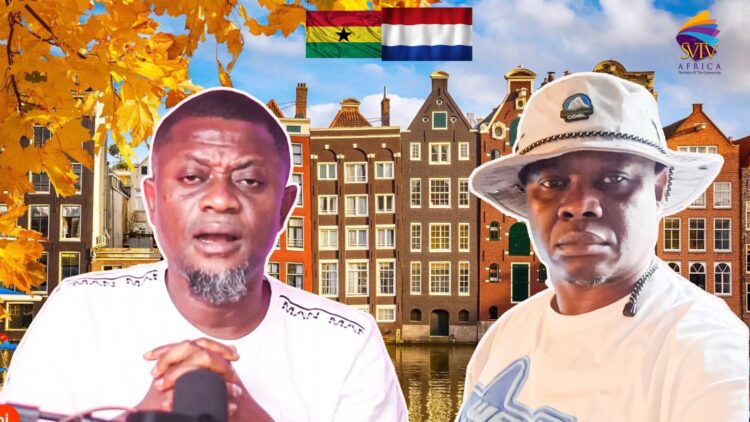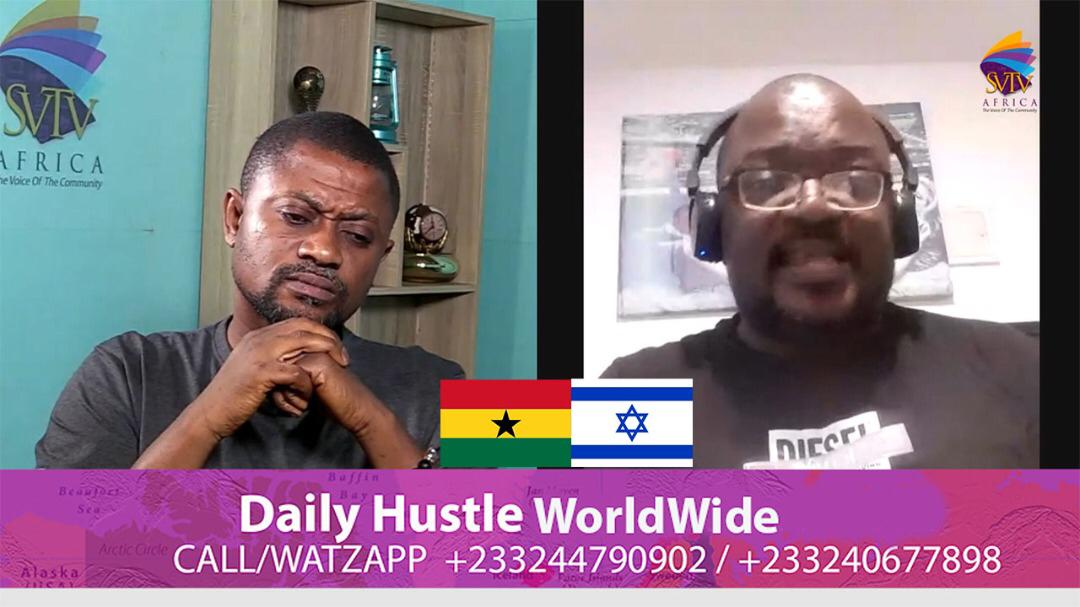Amos Karikari, a Ghanaian based in Amsterdam, Netherlands, left Ghana 24 years ago with big dreams and an even bigger dose of reality. Raised in Nkoranza, he was a bright student who dreamed of becoming a politician—even imagining himself as president one day. He attended Nkoranza Secondary School and later the Ghana National Academy, where he served as a school prefect.
Despite his academic promise, the lure of traveling abroad was strong. “Back in Ghana, we often believed that going abroad was better than getting an education,” he told DJ Nyaami in an interview on SVTV Africa’s Daily Hustle Worldwide.
Amos’ journey out of Ghana began with a failed trip through Libya, organized by his brother. They were left stranded in Burkina Faso and Agadez, eventually forced to return to Ghana empty-handed. But Amos didn’t give up.
Determined to find a new path, his sisters encouraged him to move to another European country. That’s how he ended up in Amsterdam—alone, without family or support. “I didn’t know anyone there, but I found refuge in a church community, and that changed everything,” he said.
Since 2000, Amos has lived in the Netherlands. Despite being arrested 24 times during his earlier struggles in Germany, he never lost faith.
“Whenever I prayed, I felt God was near. The church helped me, and that’s where I met my wife—a Ghanaian woman. Now we have four beautiful children.”
He works with DHL and owns a logistics company back in Ghana that delivers water in Kumasi. He’s also invested in trucking but faces major challenges at Ghana’s ports.
“The harbours are draining us. You buy a truck for €18,000, and end up paying over €20,000 in duties. It’s killing businesses.”
Amos believes in reinvesting back home and wants to establish a tomato factory in Ghana. He’s even sourced affordable machines from China—but again, the port costs are a barrier.
“We want to come back to Ghana and enjoy the fruits of our labour. But the system is discouraging.”
He emphasized the impact of technology and the shift in Ghanaian youth.
“Now with social media and e-commerce, you can sell something and earn over GHS 100,000. Things are changing.”
For him, retirement should be spent in peace—not in struggle.
“Some people abroad say they’ll never return. But for me, it’s about leaving something behind and helping the community.”
Amos ended by urging the government to reduce port duties and create a more business-friendly environment.
“We want to bring in equipment and help our people. Let’s not make it impossible.”
Watch the Video Below:















